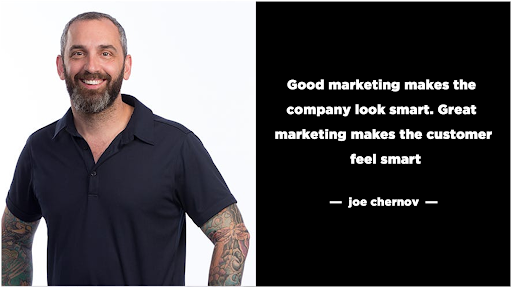Table of Contents
Introduction
As online competition intensifies in 2025, brands must do more than just send generic newsletters—they need personalized, automated, and data-driven email campaigns that convert.
Today’s top platforms are more than just email tools—they’re full-fledged marketing ecosystems designed to help online stores build lasting customer relationships, recover abandoned carts, increase repeat purchases, and boost revenue.
In this blog, we’ll explore the best email marketing platforms for eCommerce in 2025, comparing their features, pricing, and unique advantages to help you find the perfect fit for your store.
# 10 Klaviyo

Klaviyo’s eCommerce focus is unmatched. It uses geolocation for localized messaging and custom events for highly personalized campaigns, such as replenishment reminders.
- Pre-built eCommerce Templates: Most top email marketing platforms come with professionally designed, mobile-responsive templates tailored for eCommerce. Using pre-built templates saves time and ensures your emails look polished and perform well across devices.
- Dynamic Product Recommendations: This feature uses customer data and behavior to automatically suggest relevant products within your emails. Dynamic recommendations personalize the shopping experience, increase click-through rates, and drive more sales without extra effort on your part.
- A/B Testing: A/B testing allows you to send two versions of an email to small segments of your list to see which performs better—testing subject lines, layouts, send times, etc.
- Advanced Customer Segmentation: Modern email platforms allow you to segment your audience based on behavior, purchase history, location, engagement level, and more. This means you can send highly targeted campaigns.
- Real-Time Performance Analytics: Top platforms provide detailed, real-time insights into how your emails are performing. Track open rates, click-through rates, revenue generated, and customer lifetime value to refine your strategy continuously.
#9 Omnisend

Tailored for eCommerce, it offers comprehensive features like these across every plan: unlimited sends, A/B testing, customer lifecycle segmentation, gamification, geolocation, custom events, and behavioral automation.
- Pre-built Workflows: These are ready-made automation sequences like welcome emails, cart abandonment reminders, and post-purchase follow-ups. They save time and help eCommerce brands engage customers at key points in the buyer journey—without needing to build flows from scratch.
- Multichannel Flows: Email and SMS can be combined in a single automated sequence. For example, a cart reminder email might be followed by a text message if the customer doesn’t complete their purchase—boosting the chances of conversion with coordinated outreach.
- Visual Builder: A user-friendly drag-and-drop editor lets you design emails without coding. Paired with a product picker tool that pulls items directly from your store catalog, this makes it easy to create personalized, shoppable emails in minutes.
- Channel Integration: Top platforms integrate seamlessly with eCommerce tools like Shopify, WooCommerce, and BigCommerce. This allows you to sync customer data, product catalogs, and purchase history automatically, enabling personalized messaging and accurate automation triggers.
- Behavior Triggers: These allow emails or SMS messages to be sent automatically based on user actions—like visiting a product page, abandoning a cart, or making a purchase. It helps deliver timely, relevant content that increases engagement and conversion rates.
#8 Mailchimp
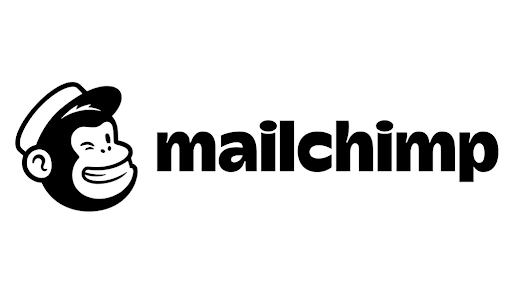
Known for ease of use and generous free tier, Mailchimp is beginner-friendly and offers solid eCommerce tools, including product recommendations and basic automation.
- Journey Builder: The customer journey builder allows you to create automated paths based on user behavior—like signing up for a newsletter, abandoning a cart, or making a purchase.
- Basic Segmentation: This feature lets you group contacts by simple criteria such as location, engagement level, or past purchases. While not as advanced as predictive segmentation, it still enables you to send more relevant messages to different audience segments.
- Platform Integration: Email tools with built-in support for Shopify, WooCommerce, and Magento make setup quick and seamless. They automatically sync customer data, order history, and product details—enabling personalized emails and automations based on real-time store activity.
- Template Library: Access to a wide range of customizable, mobile-friendly email templates makes it easy to create professional campaigns quickly. These templates are optimized for eCommerce needs like product launches, discounts, and holiday promotions.
- Real-Time Reports: Track open rates, click-throughs, conversions, and revenue as they happen. Real-time reporting helps you understand what’s working and adjust campaigns on the fly for better performance.
#7 Drip

Focuses on eCommerce marketing automation with robust features across the board.Its user-friendly interface is a relief to users seeking powerful tools without overwhelming complexity.
- Triggered Messaging: Automatically send emails or SMS based on specific customer actions, such as signing up, making a purchase, or abandoning a cart. This timely outreach boosts engagement and conversions by reaching customers when they’re most interested.
- Smart Tagging: Use advanced tagging to categorize customers based on behaviors, preferences, and purchase history. This allows for highly personalized campaigns that speak directly to each segment’s unique needs and interests.
- Performance Tracking: Monitor key metrics like revenue generated from campaigns and customer engagement levels. These insights help you measure ROI and fine-tune your marketing strategies for maximum impact.
- Split Testing: Test different versions of your emails—like subject lines or content—to see which performs better. This helps optimize your campaigns for higher open and click rates over time.
- Predictive Insights: Leverage AI-powered analytics to forecast customer behavior, such as when they’re likely to buy again or churn. This lets you proactively tailor your campaigns to boost retention and sales.
#6 ActiveCampaign
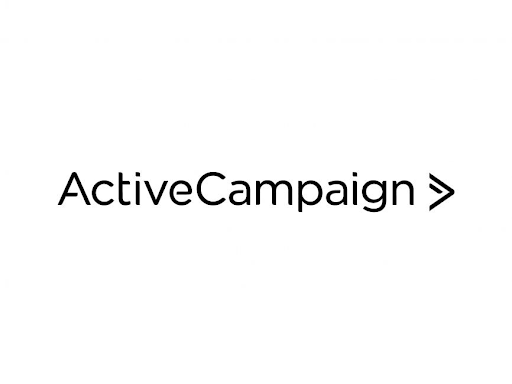
Combines email marketing with a built-in CRM, enabling sales and marketing automation in one place. Ideal for growing businesses with a multichannel strategy.
- Predictive Automation: Machine learning analyzes customer data to predict actions like purchase intent or churn risk, allowing your campaigns to automatically adjust timing and messaging for better results.
- Deep Integrations: Seamless connections with multiple eCommerce platforms and tools enable comprehensive data syncing—covering products, customers, and transactions—for highly personalized and timely marketing.
- Split Paths: Create multiple automation branches to test different workflows simultaneously. This lets you experiment with various customer journeys and identify the most effective approach to boost conversions.
- Multi-Channel: Supports marketing across multiple channels like email, SMS, push notifications, and social media, all managed within one platform to create cohesive customer experiences.
- User-Friendly: Intuitive interfaces and easy setup processes allow marketers of all skill levels to build and launch effective campaigns without needing technical expertise.
#5 Kit

Though traditionally used by creators, Kit has evolved into a capable eCommerce platform with integrations for digital products and basic automation.
- Landing Pages: Create custom landing pages and signup forms to capture leads directly from your website or campaigns. These tools help grow your email list and drive targeted traffic for promotions or product launches.
- Tag Automation: Organize subscribers with tags based on actions like signups, purchases, or clicks. This enables personalized, automated email sequences tailored to each segment’s behavior.
- Easy Integrations: Simple, out-of-the-box connections with popular eCommerce platforms like Shopify and WooCommerce make setup fast and ensure your customer and order data sync automatically for personalized messaging.
- Email Personalization: Customize email content dynamically using customer data like names, past purchases, or browsing behavior to create a more engaging and relevant experience.
- Analytics Dashboard: A centralized dashboard that provides clear insights into email campaign performance, including opens, clicks, conversions, and revenue metrics, helping you make data-driven decisions.
#4 Brevo

Combines email, SMS, and transactional messaging with robust automation—ideal for budget-conscious online retailers.
- Email Tracking: Monitor how recipients interact with your emails in real time—see who opened, clicked, or bounced—so you can quickly adjust your campaigns for better engagement.
- Messaging Campaigns: Run coordinated marketing campaigns via SMS and WhatsApp alongside email to reach customers on their preferred channels and increase conversion rates.
- CRM Integration: Connect customer relationship management (CRM) tools and live chat features within your email platform to unify customer data and provide personalized support and marketing.
- Automation Templates: Pre-designed automation workflows make it easy to set up sequences like welcome emails, cart reminders, and follow-ups without building from scratch.
- Multi-Device: Emails optimized for all devices—mobile, tablet, desktop—ensure your messages look great and perform well no matter how customers view them.
#3 Sender
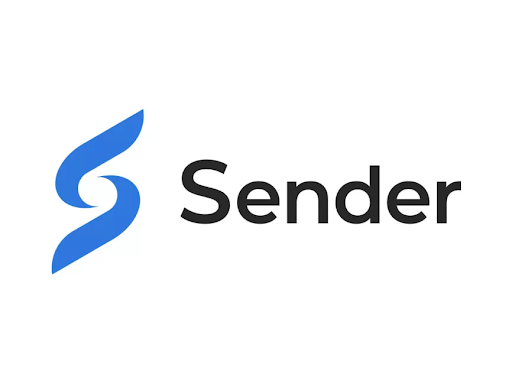
It is a user-friendly email marketing platform designed for small to mid-sized businesses, including eCommerce brands. It’s known for being affordable, easy to use, and offering strong automation features even on its free plan.
- Pre-built Automation: Sender provides a library of ready-made automation workflows that make it easy to nurture and convert your audience without manual effort. You can customize each step of the flow, set delays, and trigger emails based on specific user behaviors—saving time and increasing conversions.
- Drag-and-Drop Builder: Creating beautiful emails in Sender is simple, even if you don’t have design experience. The intuitive drag-and-drop builder allows you to add and arrange elements like images, text, buttons, and product blocks with ease.
- Segmentation & Tags: Sender enables powerful audience targeting through segmentation and tagging. You can divide your email list based on user attributes such as purchase history, location, engagement level, and more.
- SMS & Email Together: One of Sender’s standout features is the ability to run email and SMS campaigns from a single platform. This unified approach makes it easier to manage your communication strategy and ensures consistent messaging across channels.
- Real-Time Reports: Sender offers detailed, real-time reporting that gives you immediate insights into your email and SMS campaign performance. You can track open rates, click-throughs, unsubscribe rates, and conversions, all from a clean, easy-to-read dashboard.
#2 Moosend
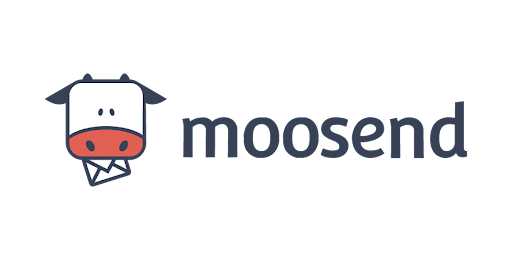
Affordable yet powerful, Moosend offers marketing automation and personalization suitable for smaller eCommerce businesses.
- Product Recommendations: Product recommendation tools in email marketing platforms like Sender help personalize your campaigns based on customer behavior and purchase history.
- Cart Abandonment Workflows: Cart abandonment workflows automatically trigger emails when a customer adds products to their cart but doesn’t complete the purchase.
- Real-Time Analytics: Real-time analytics give marketers immediate visibility into campaign performance—so you don’t have to wait hours or days to see what’s working.
- Custom Signup Forms: Custom signup forms help you grow your email list directly from your website, landing pages, or pop-ups. These forms can be embedded or triggered based on user behavior and they integrate seamlessly into automation flows.
- Responsive Templates: Responsive email templates ensure your campaigns look great on every device—desktop, tablet, or mobile. With more users checking emails on smartphones, having mobile-optimized designs is essential for maximizing engagement.
#1 HubSpot
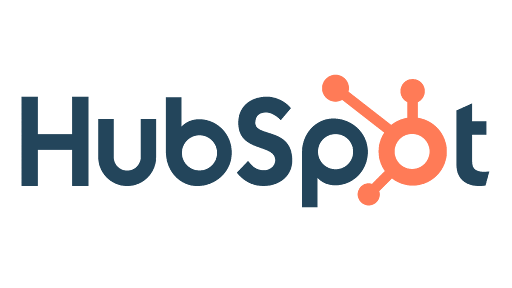
HubSpot is a powerful all-in-one marketing, sales, and CRM platform that offers robust email marketing tools tailored for growing eCommerce and B2B businesses.
- Advanced Automation: With HubSpot’s powerful workflows, you can build multi-step automations based on triggers like email opens, form fills, purchases, or CRM updates. Common flows include welcome series, lead nurturing, cart recovery (via integration), and re-engagement campaigns.
- Real-Time Analytics: HubSpot provides granular analytics for each campaign—open rates, clicks, bounces, conversions, revenue attribution, and even heatmaps. These insights help refine future campaigns for higher ROI.
- List Segmentation: Create dynamic or static segments using filters like behavior, location, lifecycle stage, or product interest. These smart lists power targeted campaigns and improve email deliverability and engagement.
- A/B Testing: Test subject lines, sender names, email content, and CTAs to find the most effective version. HubSpot can automatically send the winning variant to the remaining audience for maximum performance.
- eCommerce Integration: HubSpot connects with Shopify, WooCommerce, and other platforms via plugins or APIs. This allows you to sync product data, customer behavior, and sales metrics directly into your email and automation flows.
Conclusion
Choosing the right email marketing platform in 2025 depends on your eCommerce store’s size, goals, and budget. Whether you’re focused on simple automations or need deep segmentation and omnichannel capabilities, there’s a solution to fit every growth stage.
Beyond basic functionality, it’s essential to evaluate how well a platform integrates with your existing tech stack—especially your eCommerce platform, CRM, and payment gateway. This is particularly valuable for brands looking to scale their marketing efforts without adding operational complexity.
Additionally, consider the long-term scalability of the platform. Choosing a platform that can evolve with your business helps avoid future migration headaches and positions your brand for sustained success in an increasingly competitive online market.
Deepak Wadhwani has over 20 years experience in software/wireless technologies. He has worked with Fortune 500 companies including Intuit, ESRI, Qualcomm, Sprint, Verizon, Vodafone, Nortel, Microsoft and Oracle in over 60 countries. Deepak has worked on Internet marketing projects in San Diego, Los Angeles, Orange Country, Denver, Nashville, Kansas City, New York, San Francisco and Huntsville. Deepak has been a founder of technology Startups for one of the first Cityguides, yellow pages online and web based enterprise solutions. He is an internet marketing and technology expert & co-founder for a San Diego Internet marketing company.

